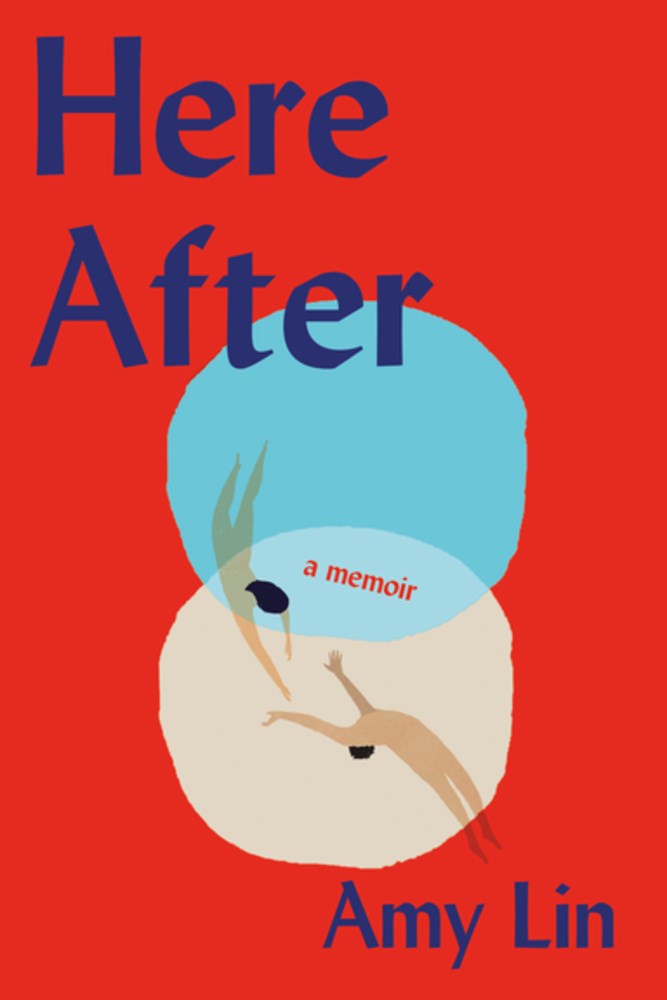Madhumita Murgia - 'Code Dependent: Living in the Shadow of AI'
So-called artificial intelligence as it affects real human beings.

This book is partly what I now need. My father died a few days past a fortnight ago and trying to understand grief is, for me, impossible at this point.
Amy Lin’s book is about her world before and after the death of her husband, Kurtis. They had been together for nearly seven years, were in their early thirties, when Kurtis suddenly and unexpectedly died.
I do not always know how to remember. In certain moments, my life with him feels illusory. A soft sheen falls over our life and it is a delicate thing. Did it happen? Was I a wife? Did he wake up beside me? Did we laugh? I know the answers are yes, but I know this like I know he is dead—which is to say, none of it feels true all the time.
We follow Lin’s steps through memories and details as her life somehow goes on, second by second, day by day; in the life and death of grief, time no longer is what it used to be.
When he dies, I fall out of time.
I recognise this. I believe most people who have experienced grief instantly knows some of the vortex-like feelings that come with time evaporation: a human being in grief no longer matters to time.
On our second date, he spends an hour making elaborate grilled cheese sandwiches I cannot eat because of the dairy. He chooses wine I do not like. This all goes in a backpack, alongside a perfectly folded picnic blanket and a portable speaker. He puts me on his spare road bike that is brown and cream. We set up a hill I cannot handle. I have been sick; my lungs are weak. Also, I am out of shape and he is not.
He barrels up the hill so fast—as if it is a flat road. I try to keep up, refusing to admit I cannot. My legs burn. My chest seizes, my breathing shallow. I am dizzy from the exertion. When my front wheel finally inches past his, for a moment I feel like I can do it, but then I am blacking out, plunging off the bike. I come to with his worried face hovering above mine.
After, he tells me it was the worst date ever but I do not agree. I love it. No one has ever gone to so much trouble for me before. No one has ever looked at me so intently, as if everything he did next depended upon me.
Lin portrays Kurtis as a wondrous and near-perfect person. She firmly states that he was this person, that her book is not hagiography.
Sometimes, I find him sitting on our bed, admiring his handiwork. Other times, I catch him photographing his left hand, his ring finger encircled by his wedding band, which he never takes off. I love being your husband, he tells me.
Their love rings clear and true. Lin exposes herself as a flawed and egoistic human being; this is partly what, to myself, makes the book work on a sublime level: Lin’s thoughts and one-page chapters (of which there are many) are carefully extracted and created from the journals she kept over time, one of the few things she managed to adhere to for a long time.
In Brayden’s apartment, I scream-sob into one of his pillows. At one point, Brayden reaches out to steady my shaking shoulders. I startle. It is such steady warmth. I grip his hand. I do not let go until my mother texts and says they are home. I live in their guest bedroom for the next fourteen months. My mother sleeps in the same bed as me for at least two.
Lin’s paragraphs and even sentences mostly work on their own, which shows not only her deftness as a writer but also as a storyteller through unknown aeons of pain. She has managed not only to compartmentalise the most painful parts of her suffering but also edit them together for us to read, for us to ingest and truly feel as she has crafted one of the most fascinating and true tales of grief and sorrow that I’ve read in a very long time, possibly since I read Roland Barthes’s Mourning Diary a few years ago, and I’ve read a few books on grief in the past two weeks.
I can’t imagine what you are going through, they say. I just can’t. Really? I think. You can’t? You have never been in pain? You have never lost something you loved and never gotten it back? You really have nothing to work with here? You can’t even try? Of course, I just nod. Yes, I say, it is very hard.
There’s more to Lin’s story but I won’t give it away: suffice to say, there is much more to find in this book than I’ll disclose in a book review.
This book is far from Hollywoodesque or written by a novice author who tried to look good through a simple ordeal; Lin has created a book that will likely stand the test of time and is a fine and brief walk through a relationship in one’s thirties; to successfully create a book that pulls of one of those things is hard, and I think she’s pulled off both feats remarkably well.
Read this book and feel held, in wonder, anger, and, ultimately, not peace but recognition in loss.
